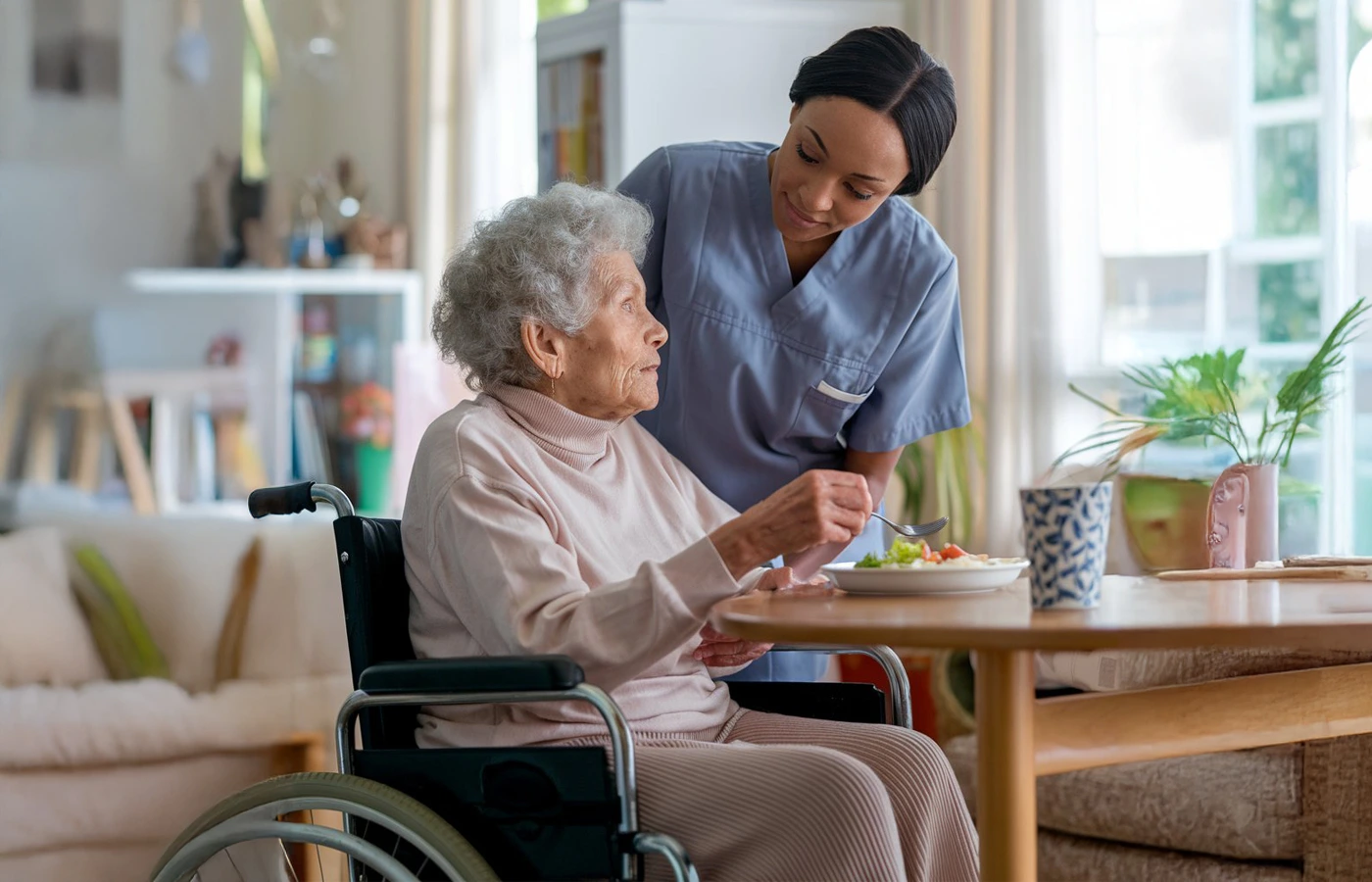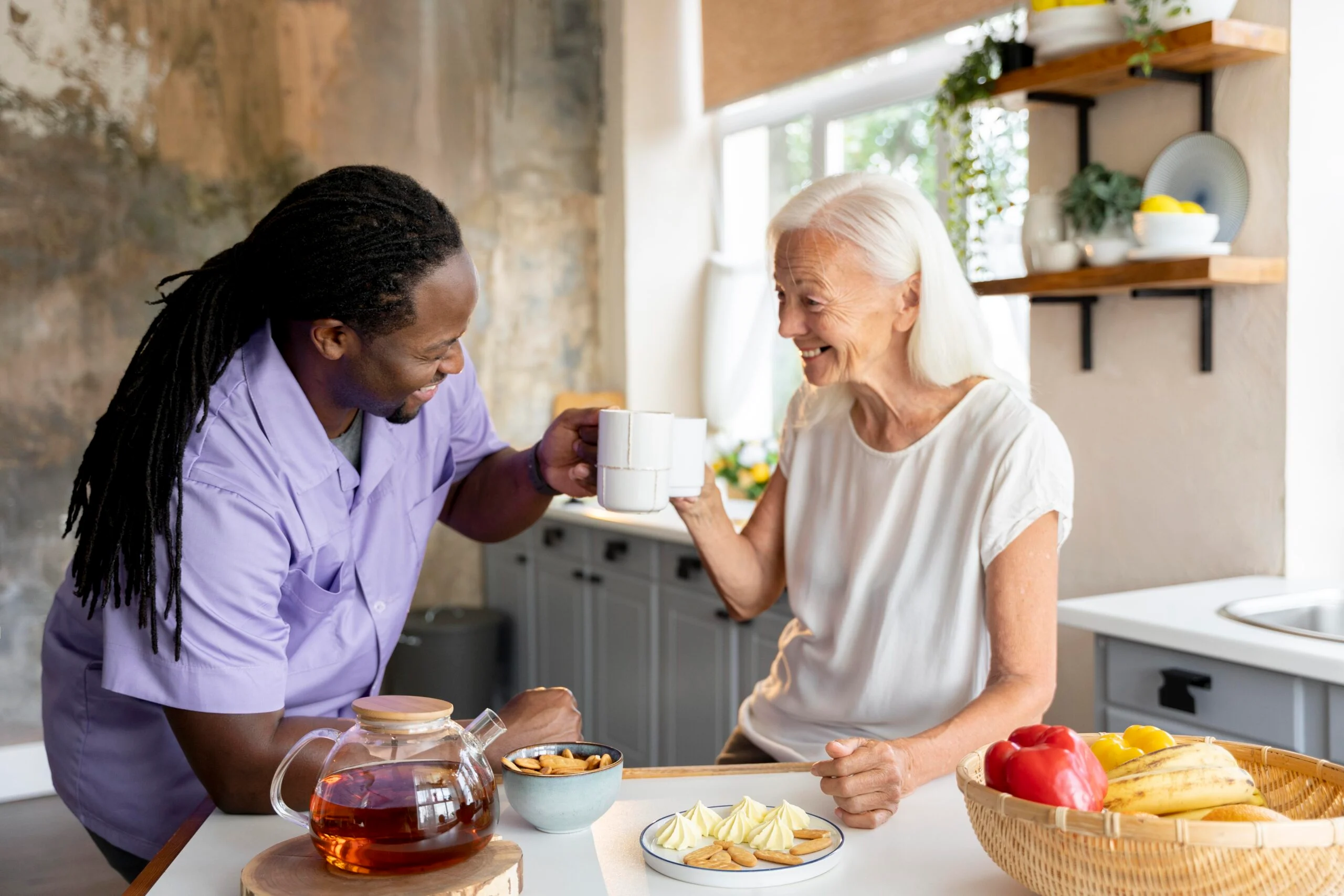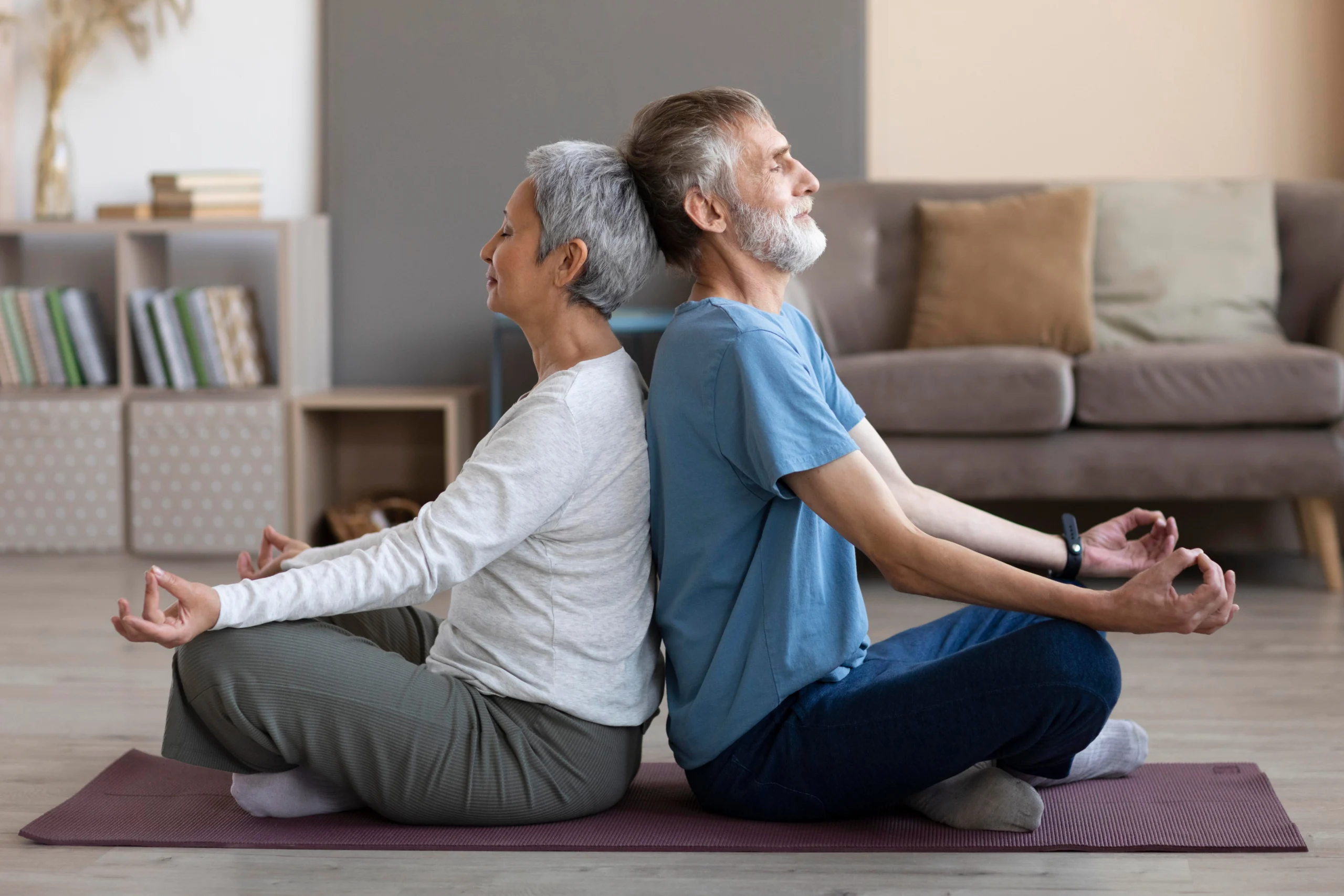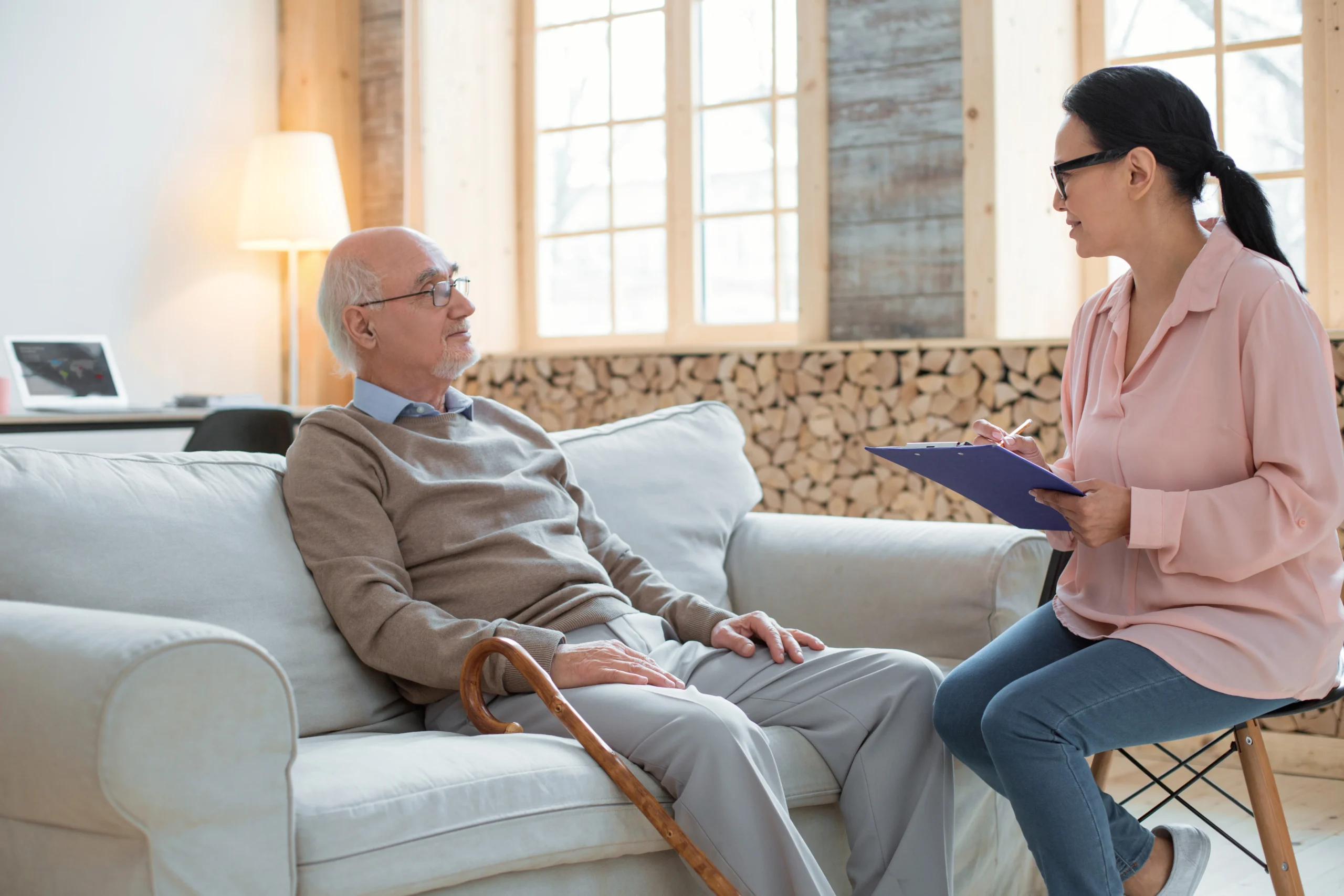Caring for elderly family members is a responsibility many of us eventually face. Balancing the demands of daily life while providing the attention they need can be overwhelming, often leading to both physical and mental strain.
Now, picture having someone by your loved one’s side who doesn’t just help with routine activities but also makes them feel safe, relaxed, and not lonely at all. This is what a Personal Care Assistant, or PCA, does. From giving medication to helping with mobility or just being there for someone, PCAs make life a lot easier with their care and services.
But, what does a PCA do and where do people find PCAs? Traditionally, finding the right PCA used to be a tedious and time-consuming process. Whether it’s navigating through countless agencies or trying to find someone through personal networks, the effort involved in verifying credentials, performing background checks, and ensuring pay scale alignment can make the whole process feel exhausting.
But things have now changed, with the internet and technology, finding PCAs that align with your requirements and budget has become simpler, easier, and more secure. Dedicated platforms like Kizuna, have changed the game by bringing in 24*7 support, background-checked professionals, and managing booking scheduling and payments all under one platform. How? Let’s dig deeper into personal care assistants, what they do, and how to find one with utmost ease.
Who are Personal Care Assistants (PCAs)?
PCA, aka Personal Care Assistant, is a professional who assists the elderly with hands-on and day-to-day activities. They help and support them in maintaining their quality of life by providing personalized assistance, such as bathing, dressing, grooming, ensuring a clean environment, helping the elderly with meals and snacks, tracking their health, and more.
Essentially, PCAs help individuals wherever they require assistance in performing their day-to-day activities.
Before, understanding the roles and responsibilities of a PCA it is crucial to understand that PCAs are a little different than caregivers. Caregivers are also professionals that provide their assistance and services to the elderly but there are a few things that differentiate a PCA from a caregiver.
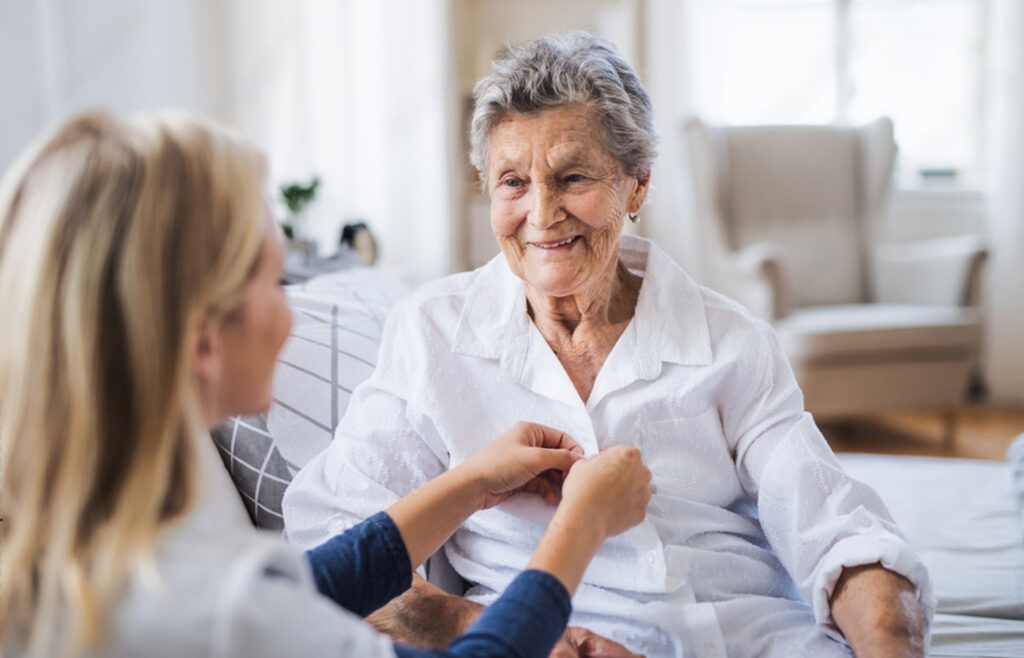
Roles and Responsibilities of a PCA for Seniors
PCAs provide any personal assistance required by the individual, some of their commonly agreed-upon roles and responsibilities are:
Responsibilities
- Support the elderly who cannot lift themselves and are unable to move.
- Assist the elderly in dressing, bathing, and eating out.
- Make sure that elderly individuals take their medicines.
- Help in physical therapy processes.
- Intervene with emotional intervention when needed.
- Prepare food considering the elder person’s food allowances.
- Help with supermarkets and other errands.
- Respond to emergencies responsibly.
- Do any required cleaning to support a hygienic and safe environment.
- Assess fluid and food responsible intake and encourage them to take in food and protect them from dehydration.
- Set plans for and administer medications and make appointments for the elderly for special physicians.
- Document all the care given, including any change of health status.
The specifics of what a personal care assistant (PCA) does depend on the arrangement and the needs of the particular family. At the outset, a clear talk on the expectations of the family and what the elderly ought to be helped with is important. As time goes on, this arrangement can be altered if need be.
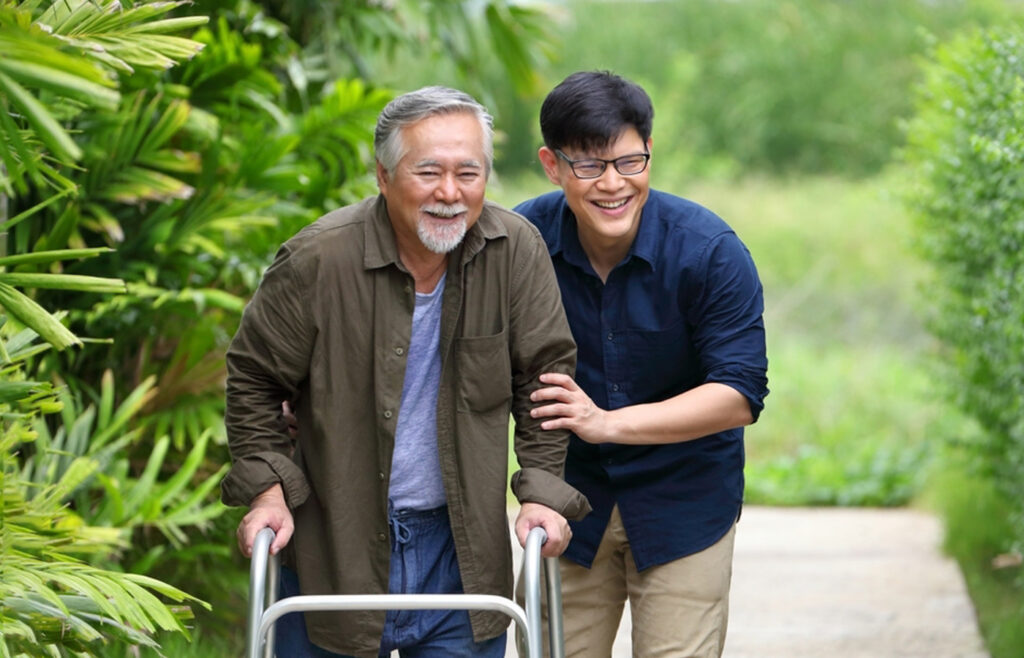
Requirements and skills of a PCA
To be a Personal Care Assistant (PCA), a mix of experience, skills and reliability is needed since this is a quality care profession. A prior experience in this position and commitment to health and safety practices are very well appreciated.
The daily activities/tasks can include cooking and cleaning, which means one has to be very organized. A high level of communication and people skills is essential when interacting with elderly patients and their families, while a caring nature provides for the dignity of their care. This job requires the use of people’s basic moral principles.
Physical stamina and strong ethics are vital for the role as well. Apart from the basics, it is advised to have CPR certification and a high school diploma or equivalent, as well as a valid driver’s license. All these aspects help enhance a PCA’s qualifications.
Where to find the right PCAs
The tedious traditional approach to finding a PCA is now long gone. Leveraging platforms like Kizuna to find the right PCA according to the specific needs of the elderly has become extremely convenient.
These dedicated platforms filter out the best professionals for you, ensuring that you can provide the best possible care for your loved ones. Not only do they help you find better care, but they also save you time and effort in the overall management of PCAs and elder care.
Let’s see how Kizuna simplifies elder care.
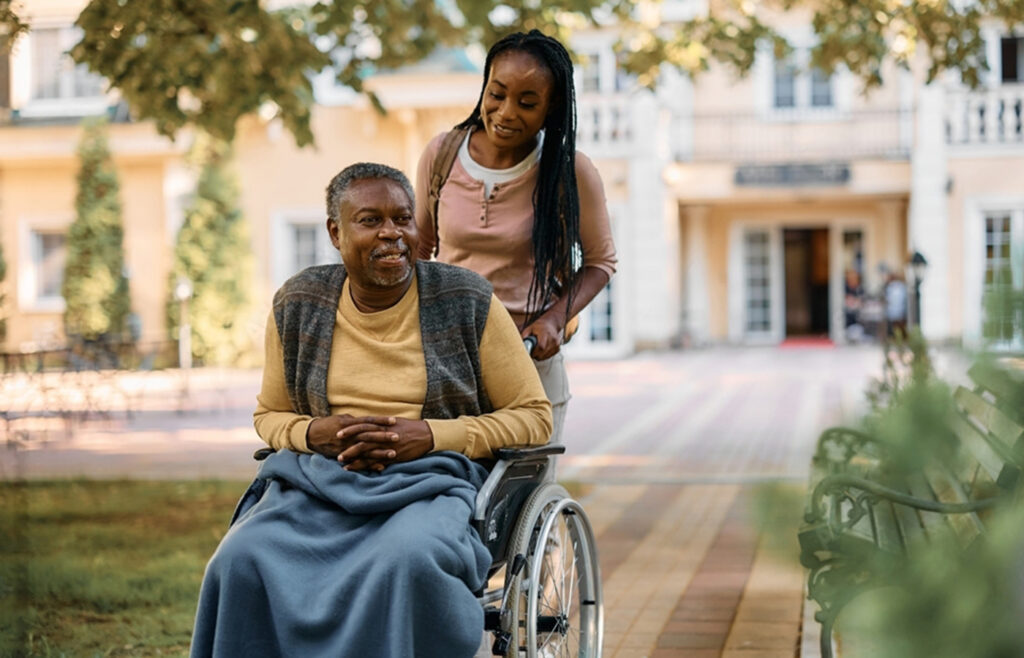
Kizuna: Simplifying Elder Care
Kizuna, is a platform designed to serve as a two-sided marketplace connecting families with professional caregivers. The platform aims to create an environment where families can easily find affordable, high-quality care for their loved ones, while caregivers can independently manage their services.
Kizuna stands out as a compassionate resource and one-stop solution to all your elderly needs, providing solutions like:
→ Trust and Safety Concerns: Usually, families are reluctant to hire PCAs due to the risks of hiring an unknown person with limited or no background information.
✅ As a solution for trust and safety, Kizuna has implemented background checks of the caregivers, ensuring the marketplace is equipped with qualified professionals.
→ Accessibility and Availability: Finding reliable and affordable caregivers can be challenging, especially in specific locations, leading to frustration for families.
✅ To solve this issue of accessibility, there is an advanced search functionality on Kizuna that has location, availability, and PCAs qualification filters, among other things, for families to find appropriate alternatives easily.
→ Communication Barriers: Families and caregivers may face disagreements due to misunderstandings, often caused by gaps in clear and open communication about care needs and expectations
✅ To solve the issue of communication, in Kizuna, there is an in-app messaging system ensuring that communication is timely and clear.
→ Quality Assurance: It is often difficult for families to check caregivers’ qualifications and experience.
✅ Kizuna encourages a higher degree of transparency, allowing caregivers to upload pictures of themselves with descriptions that detail their certifications, experience, and families’ reviews.
→ Financial Strain: Financial problems are the reasons why many families have limited options when looking for caregivers.
✅ Kizuna takes away your financial strain from elder care by supporting caregivers with different rates, thus enabling families to expect better services at lower costs.
✅ To ensure seamless service, Kizuna provides continuous care navigation throughout the caregiving journey. This support remains in place after the caregiver and family are matched, creating a smoother experience for both caregivers and families.
In addition to these solutions, Kizuna is designed to be extremely user-friendly, making it accessible for anyone in the family to find the right help.
Elder care has never been this simple, secure, and seamless.
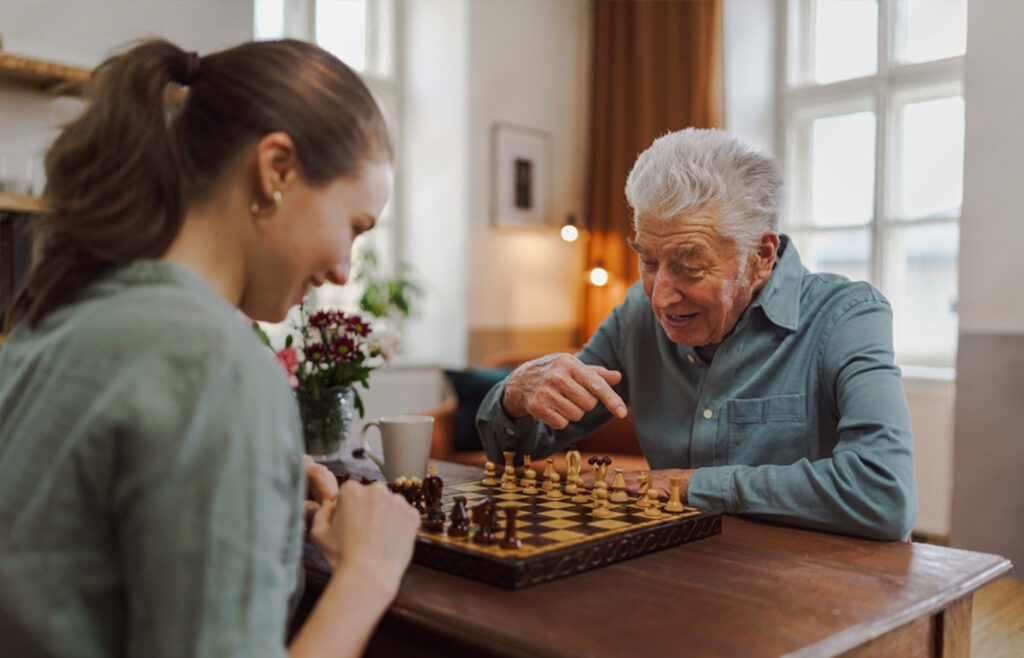
FAQs:
How do I know if a PCA is the right fit for my family?
Choosing the right assistance involves reviewing their qualifications, experience, and compatibility with your loved one. It’s also helpful to read reviews, ask for references, and conduct interviews to ensure the caregiver aligns with your family’s needs and expectations.
You can also be a part of dedicated platforms like Kizuna, which is a marketplace to find all available caregivers with their information, details, reviews, background, etc.
How can I find PCAs for elder care near me?
Do niche organic searches like dedicated caregivers in San Francisco, the North Bay Area, and even in Marin County, Sonoma County, and other such specific locations to provide personalized care. Or use a dedicated platform that filters searches by location to make the process easier, more convenient, and error-free.
How do I know if I need a PCA?
You may need a PCA if you or someone you know requires assistance at home with activities of daily living, such as:
- Dressing, feeding, personal hygiene, control activities like balancing or sitting, ambulations or movement exercises
- Light house cleaning
- Planning and cooking food
- Shopping for essential and non-essential items
- Transport to and from doctor’s and other appointments.
How can I find a PCA in the North Bay Area?
You can find caregivers in the North Bay Area by using online platforms that specialize in caregiving services. Look for local directories, community resources, or dedicated marketplaces like Kizuna, where you can filter searches by location and find caregivers with relevant experience and qualifications.
Are PCAs in Marin County and Sonoma County trained and certified?
Yes, many caregivers in Marin County are trained and certified in personal care and elder support. It’s important to verify their credentials and experience to ensure they can provide the level of care your loved one needs.
Can I get a PCA for short-term care in Marin County and Sonoma County?
Yes, many caregivers in Sonoma County offer flexible arrangements, including short-term care. Whether you need temporary assistance or a caregiver for a few hours a week, you can find options that suit your needs through local services or platforms like Kizuna.
